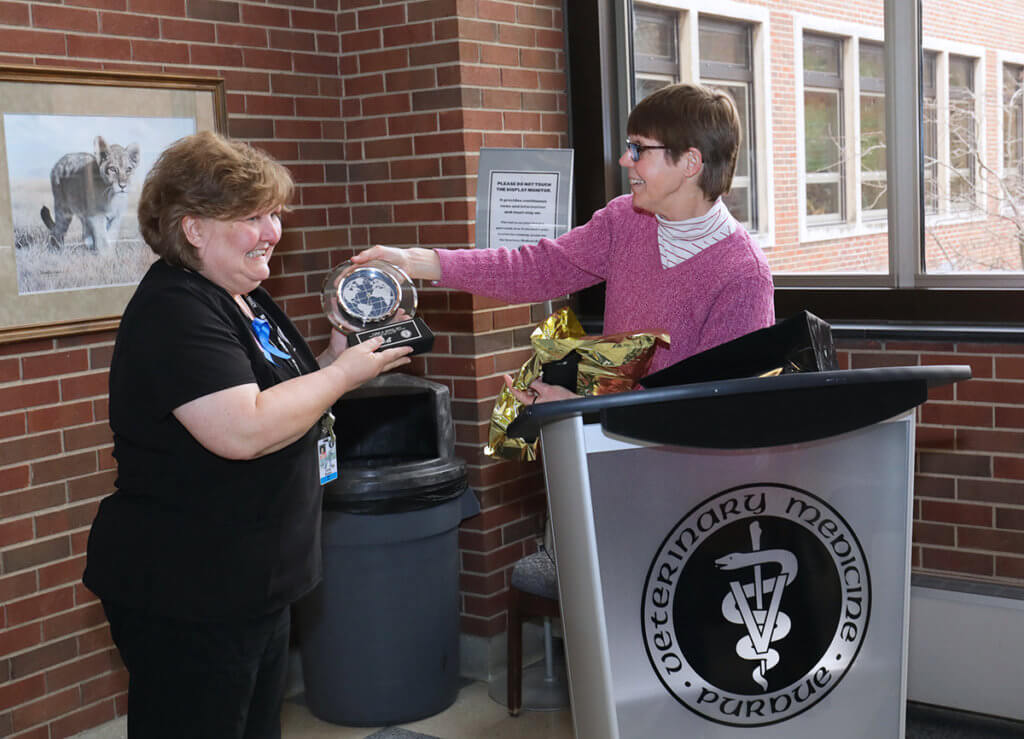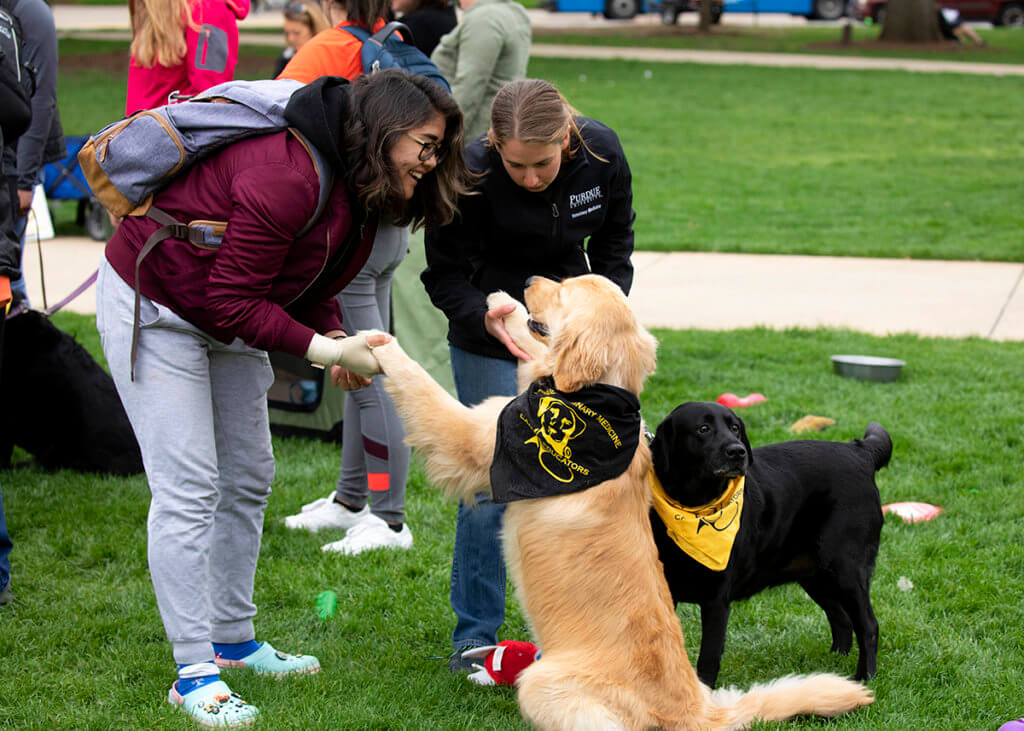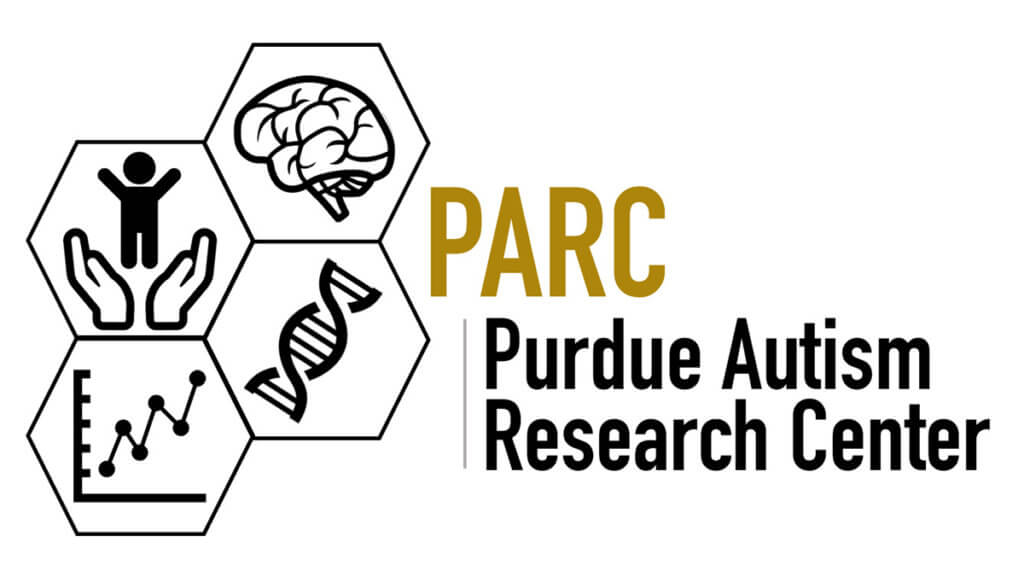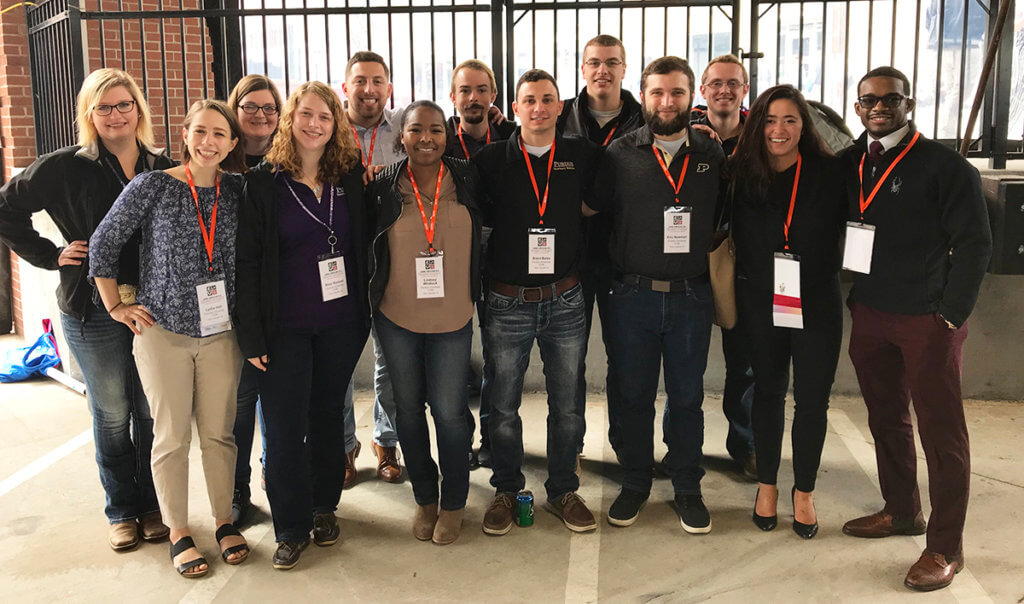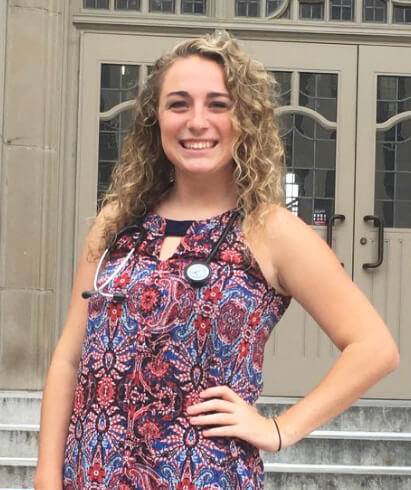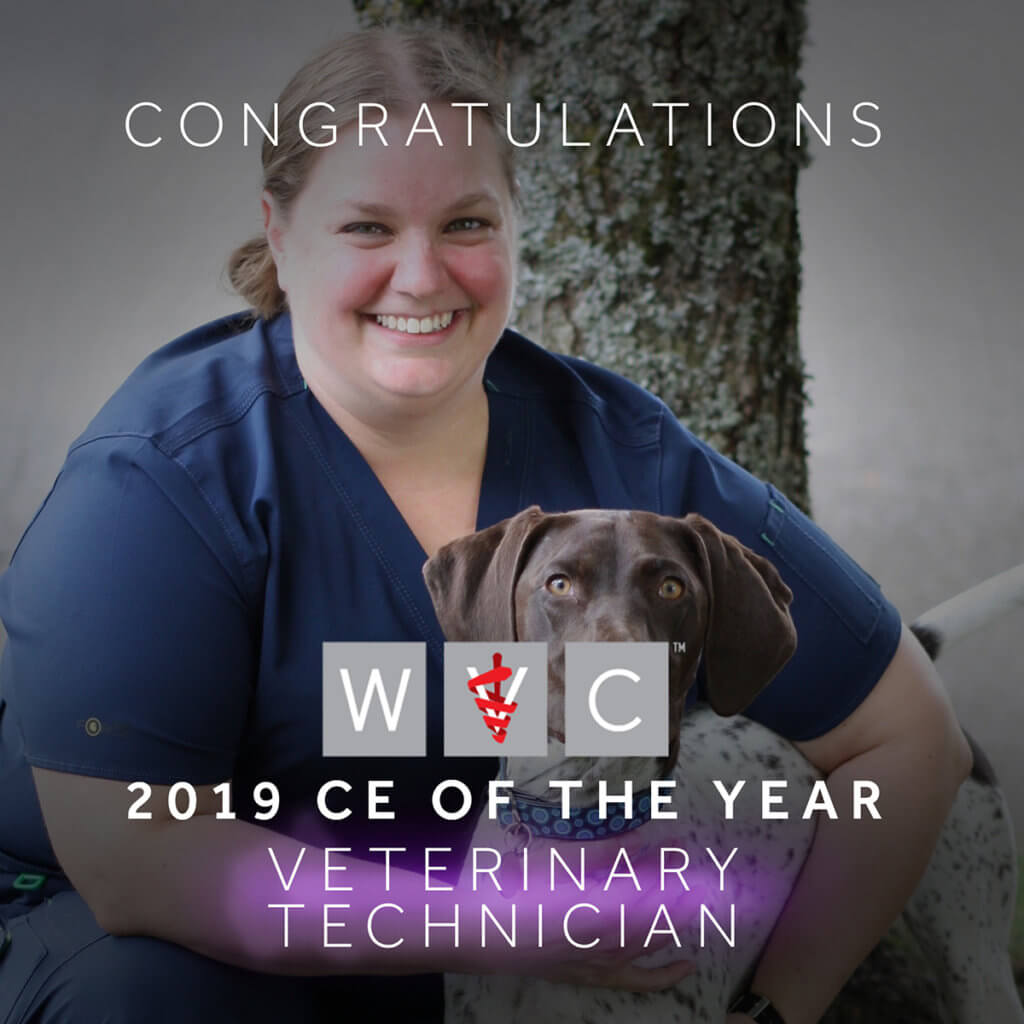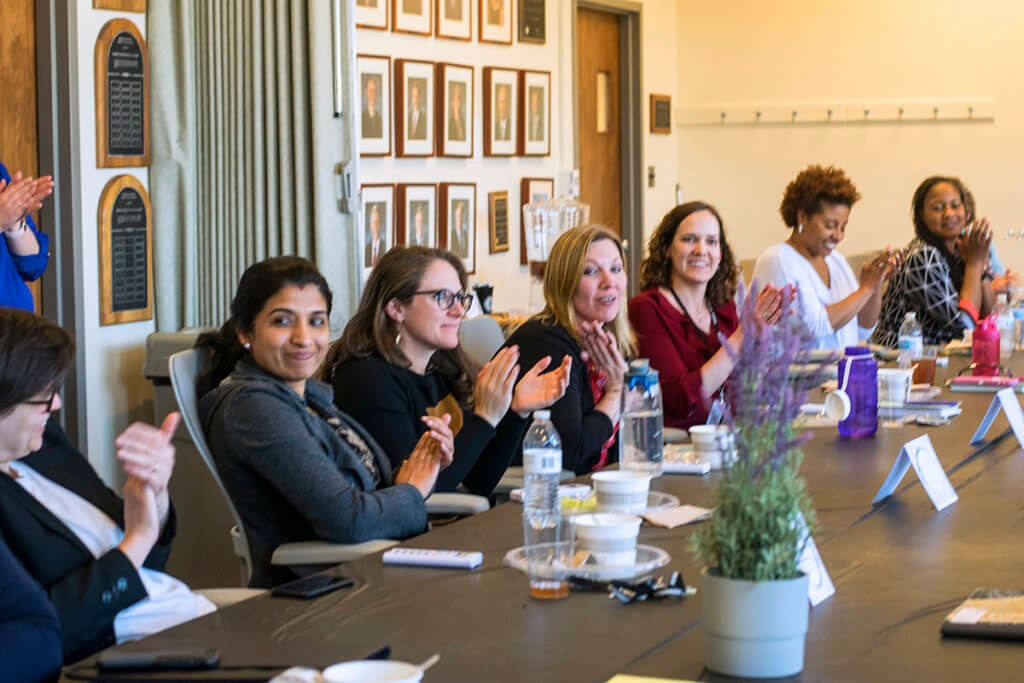Month: April 2019
Purdue animal hospital, oldest facility of its kind, gets $73M boost from Statehouse
April 30, 2019
WEST LAFAYETTE, Ind. – Ace, a red fox Labrador retriever, is a regular at the Purdue Small Animal Hospital. His owners, Ron and Denise Raduenz, on Friday drove an hour-and-a-half from Cedar Lake, in northwest Indiana, just as they have for the past seven years, when Ace was diagnosed with blastomycosis, a fungal disease that […]
PVM Scholars Honored at 21st Annual Celebration of Graduate Teaching Excellence
April 26, 2019
Several Purdue Veterinary Medicine graduate students and post-doctoral researchers were among those honored at the 21st Annual Celebration of Graduate Teaching Excellence hosted by the Office of the Provost, Purdue Teaching Academy, Graduate School, and Center for Instructional Excellence.
PVM Family Honors Chris Royce at Retirement Reception
April 26, 2019
Colleagues, family, and friends of Chris Royce, RVT, celebrated her career at her retirement reception earlier this month. The event was held in the Continuum Café on April 5, which was her last day at Purdue University, concluding a Purdue career that spanned 35 years.
Purdue Day of Giving Adds up to a Giant Leap for PVM’s 60th Anniversary!
April 26, 2019
As the clock struck midnight, it was clear that the Purdue Day of Giving Wednesday, April 24, was an outstanding day both for Purdue and for the College of Veterinary Medicine!
PVM Faculty to Play Role in New Purdue Autism Research Center
April 26, 2019
More community programs, resources, collaborations, and faculty members researching autism are expected as a result of an expanded program at Purdue University that will include Purdue Veterinary Medicine faculty involvement.
Purdue Veterinary Students Participate in Annual SAVMA Symposium
April 19, 2019
SAVMA Purdue was well-represented at the 2019 SAVMA Symposium last month, with 20 Purdue Veterinary Medicine students in attendance. They participated in various wet labs, meetings, lectures, and competitions throughout the symposium, which was held March 9-11 at the University of Georgia.
Student Spotlight: Meet VNSO Secretary Allison Reker
April 19, 2019
The Vet Gazette concludes its “Spotlight on Students” feature this week by focusing on Allison Reker, a junior in the Purdue Veterinary Nursing Program, who serves as secretary of the Veterinary Nursing Student Organization (VNSO).
Purdue Veterinary Nurse Named One of WVC’s Continuing Educators of the Year
April 19, 2019
WVC has announced its 2019 WVC Continuing Educators of the Year, and one of them is Small Animal Hospital Veterinary Nursing Manager Megan Brashear, CVT, VTS (ECC).
PVM Hosts Annual Women’s Faculty Luncheon
April 19, 2019
Female faculty members in the Purdue University College of Veterinary Medicine gathered this week for their annual luncheon led by Assistant Dean for Diversity and Inclusion Latonia Craig.
Mild equine asthma can distinguish winners from losers on the racetrack
April 16, 2019
Meet the Purdue prof leading the charge toward diagnosing and treating the disease WEST LAFAYETTE, Ind. — From chariot racing in ancient Rome to the modern Kentucky Derby, horse racing has been celebrated in some form for more than a thousand years. Whether the horses’ hooves were pounding around in a dirt-filled coliseum or a […]


